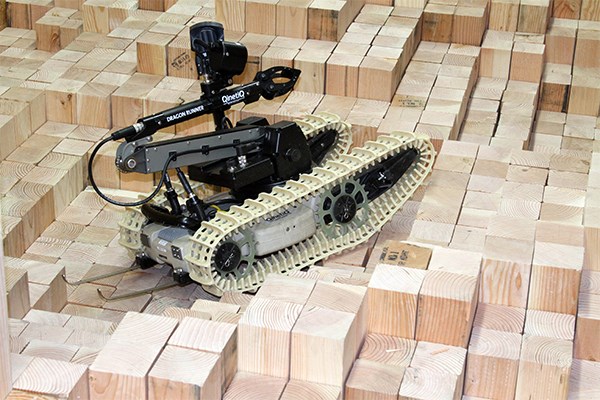
08/12/2015
Lowell Sun
LOWELL -- In the aftermath of the World Trade Center attacks in 2001 and the devastation of Hurricane Katrina in 2005, robots played a significant role in evaluating disaster sites.
Now, UMass Lowell is trying to improve the way first-responders communicate with each other and robots during such emergencies.
Google, the National Science Foundation and the National Institute for Standards and Technology have awarded more than $1 million to a UMass Lowell professor who is advancing the use of robotics to save lives, enhance workplace productivity and improve personal mobility, according to a university announcement on Tuesday.
The grants will support four research projects led by UMass Lowell Computer Science Professor Holly Yanco, founder of the university's Robotics Lab and director of the New England Robotics Validation and Experimentation (NERVE) Center at UMass Lowell.
With Google Glass devices and Project Tango-enabled laptops, they will have the video-display and sensor technology needed to create three-dimensional site maps, which can be transmitted in real time to authorities monitoring events -- including search-and-rescue missions, bomb threats and environmental disasters.
"Once you have a detailed 3-D map of the site, you can develop a way of looking through walls during search-and-rescue operations and predicting the kind of structures you will likely encounter behind a wall or door," Yanco said in a statement.
"Our goal is to improve emergency response through more effective information sharing and augmented visualizations."
Google has provided more than $50,000 to the year-long project, which also incorporates the research of a robotics systems designer who aided in the rescue efforts at the World Trade Center.
Police, bomb squads and other first responders should also benefit from another one of Yanco's projects; she is developing international training standards to teach emergency personnel how to use robots. The project will receive more than $280,000 from the National Institute for Standards and Technology (NIST) over three years.
In addition, Yanco will evaluate the durability and performance of robots. The two-year project, supported by a $181,000 grant from NIST, will test the safety of using automated guided vehicles in a variety of manufacturing and service environments alongside employees.
Also, the National Science Foundation has awarded Yanco a $553,607 grant to develop assistive technology for people with physical challenges; she is working to create and test a robotic arm that may be mounted on a motorized wheelchair or scooter.
The technology also has the potential to be used by military and law-enforcement personnel, astronauts, oceanographers and others.
